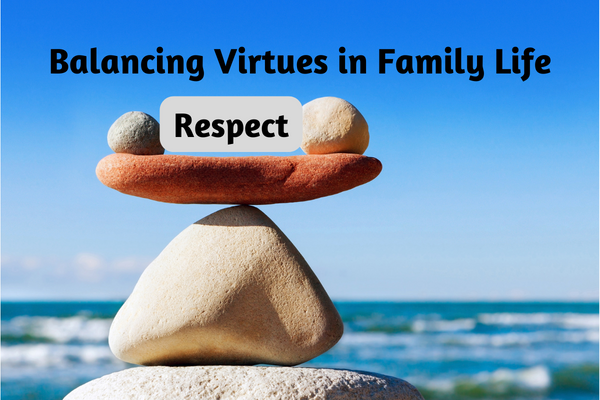
Parenting Hacks to Keep Kids Committed When the Going Gets Tough
Have you ever experienced the frustration of signing up your child for an activity only to have them want to quit within the first few weeks? It’s a common parenting dilemma that can leave you feeling lost like you just wasted your money. From soccer to piano lessons, navigating your child’s ever-changing interests can be like navigating a maze with no apparent exit. Let’s explore practical strategies and insights to help you keep your child committed and engaged in their activities, turning parenting headaches into moments of growth and empowerment.
Parenting presents many challenges, including nurturing the virtue of commitment in children, particularly when encountering difficulties or setbacks. It’s not uncommon for children to feel discouraged or tempted to give up when faced with challenges or when their efforts don’t yield perfect results.

Guiding children through these moments is crucial for fostering resilience, perseverance, and a steadfast commitment to their goals. In this exploration, we delve into strategies and insights on cultivating the virtue of commitment in children, especially in situations where challenges arise or perfection seems elusive.
Pitfalls to Avoid
When cultivating a commitment to an activity with your child, it’s essential to avoid certain pitfalls that can inadvertently undermine their motivation and enthusiasm. Here are some common mistakes parents make in trying to keep a child committed:
-
-
- Imposing Personal Goals: Avoid imposing your own goals or aspirations on your child. Pressuring them to pursue activities that align with your interests rather than theirs can lead to resentment and disengagement.
- Overemphasizing Perfection: Refrain from placing too much emphasis on achieving perfection. Focusing solely on flawless performance can create undue pressure and anxiety, causing your child to lose sight of the joy and learning inherent in the activity.
- Ignoring Their Preferences: Don’t disregard your child’s preferences and interests when selecting activities. Pushing them into activities they have little interest in or dislike can result in resistance and a reluctance to commit.
- Undermining Efforts: Avoid dismissing or belittling your child’s efforts, even if they don’t meet your expectations. Criticizing or devaluing their attempts can damage their self-esteem and discourage further engagement in the activity.
- Neglecting Communication: Don’t overlook the importance of open communication and collaboration with your child. Failing to involve them in decision-making or neglecting to listen to their thoughts and feelings can lead to feelings of disempowerment and detachment.
- Forcing Rigidity: Avoid enforcing rigid rules or schedules with little room for flexibility and autonomy. Allowing your child some degree of control and freedom in their pursuits can foster a sense of ownership and commitment.
- Comparing to Others: Refrain from comparing your child to their peers or siblings regarding progress or achievement. Each child is unique, and comparing them to others can breed feelings of inadequacy and undermine their confidence.
- Lack of Encouragement: Don’t underestimate the power of encouragement and positive reinforcement. Failing to acknowledge and celebrate your child’s efforts and progress can diminish their motivation and sense of accomplishment.
-
By avoiding these common mistakes and adopting a supportive, empowering approach, parents can effectively cultivate a genuine commitment to activities in their children, fostering enthusiasm, resilience, and a lifelong love of learning.
Bring out the best in your child
Cultivating the virtue of commitment in children who are tempted to give up when faced with challenges or imperfections requires patience, support, and a nurturing environment that promotes resilience and perseverance. Here are some strategies to help instill a sense of commitment in these situations:
-
-
- Normalize Challenges: Help children understand that encountering difficulties and setbacks is a natural learning process. Normalize that making mistakes and facing challenges are opportunities for growth and learning rather than failure indicators.
- Encourage Effort and Progress: Shift the focus from achieving perfection to valuing effort and progress. Celebrate your child’s perseverance and determination, regardless of the outcome. Highlight the importance of resilience and grit in overcoming obstacles and achieving success.
- Provide Supportive Feedback: Offer constructive feedback focusing on the process rather than the result. Acknowledge your child’s efforts and highlight specific strategies or improvements they can make to overcome challenges. Encourage them to reflect on their experiences and identify ways to approach the task differently in the future.
- Set Realistic Expectations: Help children set realistic expectations by breaking down larger tasks into smaller, manageable steps. Encourage them to focus on making incremental progress rather than expecting immediate perfection. Reinforce the idea that commitment involves perseverance and consistency over time.
- Model Perseverance: Lead by example and demonstrate perseverance in your pursuits. Share stories of times when you faced challenges or setbacks and persevered despite obstacles. Your resilience and determination can be a powerful example for your child and inspire them to adopt a similar mindset.
- Provide Encouragement and Support: Offer encouragement and support to reassure your child that they can overcome challenges. Remind them that setbacks are temporary and that they have the strength and resilience to keep moving forward. Be a source of comfort and guidance as they navigate difficulties.
- Celebrate Achievements: Celebrate your child’s successes, no matter how small, to reinforce their commitment and perseverance. Recognize their efforts and achievements with praise, encouragement, and rewards. Celebrating milestones along the way can boost their confidence and motivation to continue striving towards their goals.
-
By implementing these strategies, parents can help cultivate the virtue of commitment in children and empower them to persevere in the face of challenges, setbacks, and imperfections. Through support, encouragement, and a nurturing environment that promotes resilience, children can develop the mindset and skills they need to stay committed to their goals and aspirations.
I invite you to sign up for our newsletter. It is a great way to get the Virtue of the Month and tips on relationships, parenting, and self-care. In addition, you’ll be the first to know about upcoming classes for successful families.
To sign up, visit the “Newsletter” section here on the website. Enter your email address, and you’ll receive our newsletter in your inbox on Wednesdays. I appreciate your interest in bringing out the best in your children and yourself. We look forward to keeping you informed through our newsletter!











